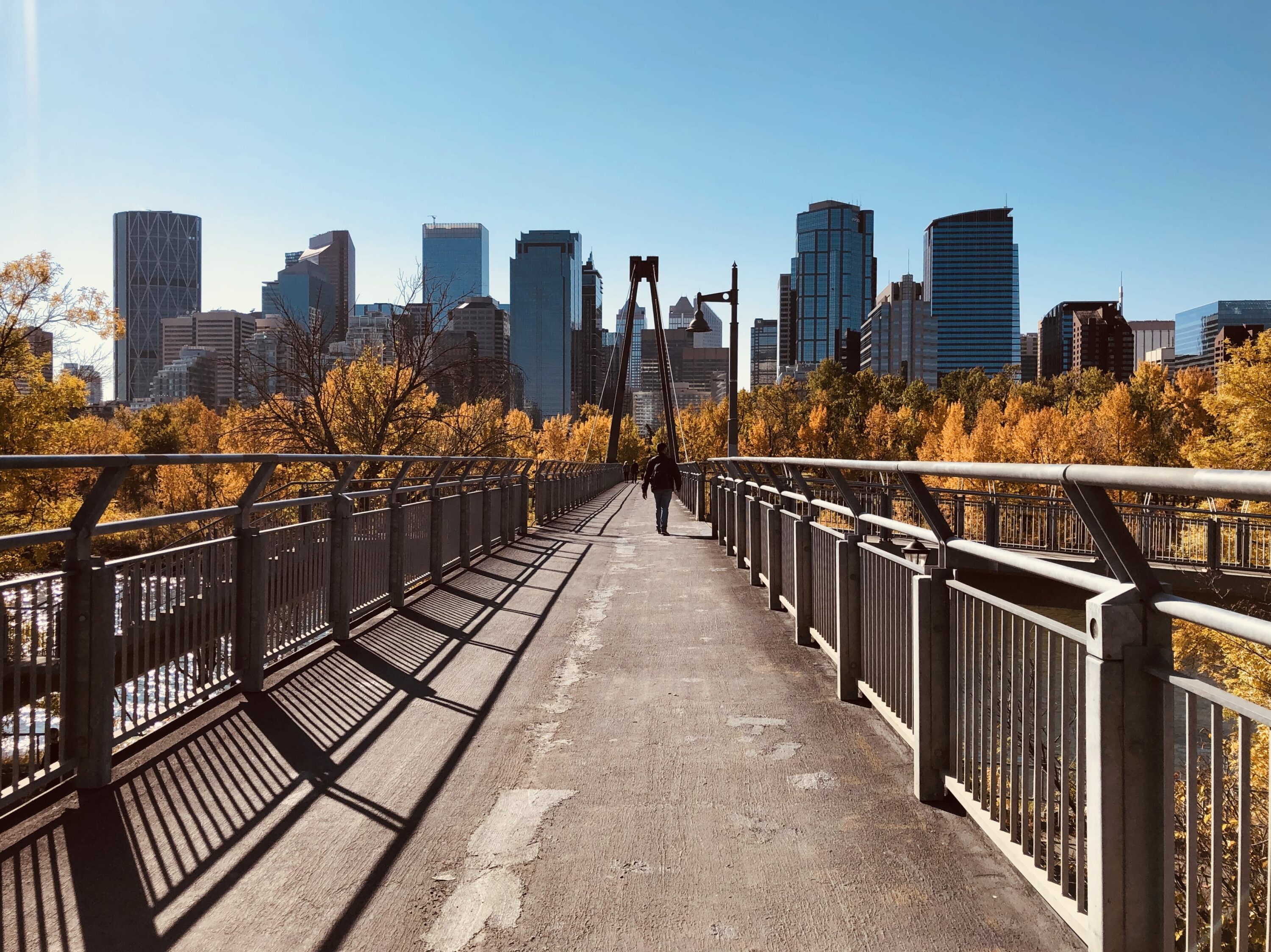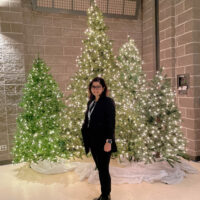(*Title inspired by Indian film RRR)
Recap (2016-2019) –
I joined Vani Brahmachari’s lab (University of Delhi) in Feb 2016, finished my first postdoc in Jan 2019. During postdoc, our daughter – Addy was born. Addy and mealybugs (my postdoc research) kept me busy and happy.
(Aug 2019-Aug 2022)
Rethinking
Things were not the same after Addy’s birth. Neither our lives nor our thoughts – What we thought was perfect a year ago didn’t make any sense now. We started planning our life around Addy’s. Like every parent, we wanted to provide her with an idyllic lifestyle. So, we considered making a move to improve our quality of life. Funny part—even we didn’t know what all came under the umbrella of “quality of life,”. One thing, we knew was what our current problems were. There was a thirst for finding solutions to those problems. I still remember, in a very casual conversation, when my husband told me about the permanent residency (PR) programme of Canada, and I thought for a while and immediately said, “Let’s do it!” I was looking for this kind of option to move with my family and with certainty. It was a long journey until we reached Canada. I prepared for IELTS, waited for a “golden score”, followed up with documentation and paperwork, resigned, said my goodbyes, and made a move. I never imagined that leaving a rented house would be painful too, we had built beautiful memories with Addy there. Finally, we moved to Calgary in August 2019 with five luggage bags. Calgary was not a choice or on the list, but I was offered a position there for which I was grateful; I had something to look forward to before moving. Calgary is a beautiful place, and it has won our hearts over the years. No wonder, it is one of the most livable cities in the world.
Resilience
Finding a New Job
I applied for several postdoc opportunities in Canada and eventually received a call from Dr. Chad Bousman’s lab at the University of Calgary. Before the interview, I mailed him some slides where I outlined my ideas around his project. He was happy to see that I had taken the time to align my experience to his project. During an hour-and-a-half-long interview, I described my research experience and how I could be a good fit in his lab, and then he explained where he wanted me to take the lead. I was anticipating a typical grind round (technical definitions, which statistical test to apply etc. etc.). Despite all the preparation, this is always a nerve-racking round for me (I am not saying these are irrelevant questions). It didn’t happen (surprised!). Chad’s interview was more scenario-based, and it made a lot more sense at the postdoc level. One of the interview questions that I distinctly remember was – “Why do you want to come to Canada?” It was difficult to answer, and I tried to be as honest as I could be.
Note: Please keep in mind that your interviewer may or may not like sending project ideas in the form of a presentation. It is highly dependent on how your interviewer wants to conduct it. This idea backfired on me when I was applying for a volunteer position, so don’t make it a golden rule.
Cultural alienation or a crisis of belonging: an opportunity to reinvent myself.
As our flight landed in Calgary, it was comforting to find Chad at the airport. Not only did he come down to pick us up, but he also gave me time to sort things -rent a place, complete official stuff, etc., etc. That time was crucial because as a family we were going through a lot. Finally, I joined my new role without knowing where the administration and HR offices are – Can you imagine? Administrative processes are so streamlined, and everything is done through the university portal system and email. I’ve never had such a smooth transition experience. Despite the ease and comfort, my happiness was lost. For approximately 6 months, I had this sense of personal regression.
From a research standpoint, things were standard and straightforward. I had no issues working on new research problems. I used to miss “my people” at work. Those chai discussions in the canteen, sharing lunch, lab get-togethers, and so on. My social life was no longer the same. I don’t see myself as a social butterfly kind of person, but I love my social cocoon (a small, tight-knit group) that I built over years in India. I started making small efforts to adapt to the new culture. What helped me tremendously was exploring and loving the city, this helped me in making a strong connection. Making new connections doesn’t mean abandoning your roots. I think this newbie experience activated my long dormant portion of the brain, known as the tortoise mind. I channelled my energy into writing, volunteering and learning new things. Tortoise mind is a dreamy world where you can be creative, have random ideas (which can also be terrible!), playful and ponder over things rather than looking for a solution (a book by – John Cleese – Creativity: A short and cheerful guide, he discussed about two different ways of thinking – Hare brain, Tortoise mind by citing some interesting examples).
Now, let’s talk more about another postdoc life— is it just reinventing the wheel?
As I am writing, it’s a kind of retrospection and re-evaluation of how these two postdocs shaped my career and personality. Did I consider this job just a breadwinner, or did it make me a better researcher over the years? What did I gain or learn and what did I fail to learn despite the opportunities I had on my plate? Did I get better when dealing with rejections and ineligibilities? It comes along with many questions like this.
Honest retrospection isn’t easy; it means confronting failures, and acknowledging your incompetencies, which you tend to avoid or neglect over the years. At the same time, you’ll know your strengths and what makes you stand out from the rest.
Whenever I am upset, I consider my two postdocs as an expedited PhD without a thesis; technically, looking at my present profile or position, two postdocs seem redundant. In my relaxed mood, my answers are different. My postdocs made me more than a manuscript-generating machine. I want to talk about two aspects where my postdoc experience is pivotal.
Responsibilities for mentoring and supervising: Being someone’s (co-)supervisor is a responsibility, not an authority. It is important to be considerate when you are co-supervising students. If I recall instances of co-supervising duties during my PhD, it was on the “dominating” side. My techniques for teaching (behaviourally!!) could be much better. There were instances where I felt intimidated by some very bright minds that I came across. That could be natural; your ego and insecurities can overpower wisdom at times. What I could have done differently – I wish I could have developed a more symbiotic relationship rather than thinking of it as competitive. I lacked the maturity to deal with people of different temperaments. I was inconsiderate many times. If I time travel and re-evaluate previous circumstances, my responses will be different and much better in the present. I learn it is feasible to handle situations without toxicity. Compassion is a secret formula for creating happy labs.
Another gift of research career – networking through collaborations, conferences/workshops and random scientific discussions over tea/coffee. Building meaningful professional network is not a one-day conversation process and largely driven by your work, collaborations and how you keep it alive. My number of LinkedIn connections is not directly proportional to my real and reliable network. I build those small connections but meaningful connections over years. I believe in leaving places on a good note.
Networking is a complex process, there are different perspectives to understand it. When I came to Canada and my husband was in a job search mode, every person we met advised “networking”. It’s a kind of buzz word here. How do I do networking? “Write to people in your domain to meet over coffee, prepare an elevator pitch,” these were most frequent answers. I really feel weird you’re meeting someone for the first time with a clear intention of some favour. That’s not wrong, but that’s not my comfort level. Through my husband’s experience, I found meet-up sessions (kind of discussion sessions relevant to your field of interest) very interesting and a great opportunity for networking.
There might be different strategies or better ways of networking, which are beyond my expertise to explain here, that’s why institutes focus on designing dedicated sessions on explaining the importance and effective ways of networking.
During a conference, I literally stalked a scientist to discuss a job opportunity. I wish I could have a chance to go back and fix this. All I needed was a little networking etiquette! Ideally, I should have sent a mail prior to the conference explaining my research and mentioning the poster number. Scientists are extremely busy at conferences as it is a kind of networking event, so asking for a convenient time to meet and discuss science won’t hurt.
Refresh – To be continuedI realise there are many overlapping things/scenes in seasons 2 and 3, and I find it difficult to separate them, but I’ll pick up where I left off. I will discuss my career path (still evolving!!) and how innovative programmes at the University of Calgary broadened my horizons of thinking about research and innovation. Research equips us with many soft skills, we need to activate our tortoise mind to understand and value them. Stay tuned for season 3!




Ankita
I am Ankita, working as a bioinformatician at the University of Calgary, Canada. I earned my PhD at CSIR-
IGIB with Dr. Debasish Dash and Dr. Mitali Mukerji. I strive to learn new things in science, but scientific
writing is too formal and a hurdle for me. I thought, for the time being, let’s enjoy the technical side of
science in an academic setting where I have the opportunity to teach and co-supervise as well. Beyond
work, I love writing and editing videos. I am not pro at either, just learning and improving. Mom of a
super energetic 6-year-old girl. I collaborate with my husband on his food experiments; he cooks, and I
eat and write about or make short videos about his food experiments for social media.

